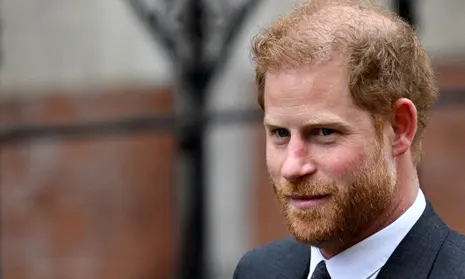Prince Harry has lost a legal challenge over his bid to be allowed to make private payments for police protection.
His lawyers wanted a judicial review of the rejection of his offer to pay for protection in the UK, after his security arrangements changed when the prince stopped being a “working royal”.
But a judge has ruled not to give the go ahead for such a hearing.
Home Office lawyers had opposed the idea of allowing wealthy people to “buy” security from the police.
This ruling, refusing permission for a judicial review, followed a one-day court hearing in London last week.
Since then the Duke and Duchess of Sussex have been involved in what their spokesperson described as a “near catastrophic car chase” involving paparazzi in New York.
But at the High Court last week, lawyers for Prince Harry had challenged the decision to reject his private funding for police protection when visiting the UK.
When Prince Harry stepped down from being a “working royal” in 2020 it meant he no longer had access to his previous level of security.
But Prince Harry challenged how this decision was reached by the Executive Committee for the Protection of Royalty and Public Figures – known as Ravec – which covers security for high-profile figures, including senior royals.
“Ravec has exceeded its authority, its power, because it doesn’t have the power to make this decision in the first place,” Prince Harry’s lawyers had told the court.
They argued that there were provisions in legislation allowing for payment for “special police services” and as such “payment for policing is not inconsistent with the public interest”.
But lawyers for the Home Office said the type of protection under discussion, which could mean “specialist officers as bodyguards”, was not the same as funding for extra policing for football matches.
A barrister for the Metropolitan Police argued that it would be unreasonable to expose officers to danger because of “payment of a fee by a private individual”.
The Home Office legal team said the Ravec committee had unanimously rejected the offer of private payment and that it was a matter of policy to oppose the idea that a “wealthy person should be permitted to ‘buy’ protective security”.
The Home Office said there was no requirement for the Ravec committee to allow Prince Harry to make representations to them and there was little prospect of the decision being changed.
“Given the nature of the arguments now advanced by the claimant, the court can be confident that such representations would have been highly likely to have made no substantial difference in any event,” the Home Office’s lawyers told the court.
Source: BBC


Comments are closed.